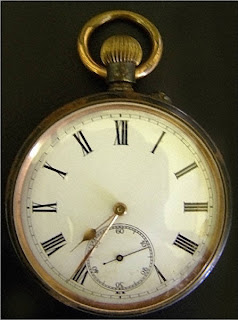In any event, the mangel is a noble vegetable, and it has a noble poetic history.
Stanley Spencer, "Distant View of Maidenhead, Berkshire" (1939)
The following poem by Ivor Gurney begins with Edward Thomas, turns to mangels, and then heads off on one of Gurney's wonderful excursions.
The Mangel-bury
It was after War, Edward Thomas had fallen at Arras --
I was walking by Gloucester musing on such things
As fill his verse with goodness; it was February; the long house
Straw-thatched of the mangels stretched two wide wings;
And looked as part of the earth heaped up by dead soldiers
In the most fitting place -- along the hedges yet-bare-lines.
West spring breathed there early, that none foreign divines.
Across the flat country the rattling of the cart sounded;
Heavy of wood, jingling of iron; as he neared me, I waited
For the chance perhaps of heaving at those great rounded
Ruddy or orange things -- and right to be rolled and hefted
By a body like mine, soldier-still, and clean from water.
Silent he assented; till the cart was drifted
High with those creatures, so right in size and matter,
We threw them with our bodies swinging; blood in my ears singing:
His was the thick-set sort of farmer, but well-built --
Perhaps long before, his blood's name ruled all:
Watched all things for his own. If my luck had so willed
Many questions of lordship I had heard him tell -- old
Names, rumours. But my pain to more moving called
And him to some barn business far in the fifteen acre field.
Ivor Gurney, Selected Poems (edited by George Walter) (J. M. Dent 1996).
Of course, one wonders whether Gurney had Thomas's "Swedes" in mind, both when he was tossing mangels into the farm-cart and later when he wrote the poem. I find the phrase "after War" (not "after the War," as one might expect) intriguing: does Gurney have in mind "War" as a perennial human condition, rather than "the War" as a unique historical event? But I may be reading too much into it.
Christopher Nevinson, "A Winter Landscape" (1926)
In 1932, Thomas's widow Helen visited Gurney in the asylum in which he was confined. Her description of her initial meeting with Gurney is heart-breaking:
"We were walking along a bare corridor when we were met by a tall gaunt dishevelled man clad in pyjamas and dressing gown, to whom Miss [Marion] Scott introduced me. He gazed with an intense stare into my face and took me silently by the hand. Then I gave him the flowers, which he took with the same deeply moving intensity and silence. He then said, 'You are Helen, Edward's wife and Edward is dead.' And I said, 'Yes, let us talk of him.'
So we went into a little cell-like bedroom where the only furniture was a bed and a chair. The window was high and barred and the walls bare and drab. He put the flowers on the bed for there was no vessel to put them in; there was nothing in the room that could in any way be used to do damage with -- no pottery or jars or pictures whose broken edge could be used as a weapon. . . . We spoke of country that he knew and which Edward knew too and he evidently identified Edward with the English countryside, especially that of Gloucestershire."
Helen Thomas, "Ivor Gurney," in Time and Again: Memoirs and Letters (edited by Myfanwy Thomas (Carcanet 1978). The final stanza of "Adlestrop" comes immediately to mind:
And for that minute a blackbird sang
Close by, and round him, mistier,
Farther and farther, all the birds
Of Oxfordshire and Gloucestershire.
She then recounts her second visit to Gurney:
"The next time I went with Miss Scott I took with me Edward's own well-used ordnance maps of Gloucestershire where he had often walked. This proved to have been a sort of inspiration, for Ivor Gurney at once spread them out on his bed and he and I spent the whole time I was there tracing with our fingers the lanes and byways and villages of which Ivor Gurney knew every step and over which Edward had also walked. He spent that hour in revisiting his home, in spotting a village or a track, a hill or a wood and seeing it all in his mind's eye, with flowers and trees, stiles and hedges, a mental vision sharper and more actual for his heightened intensity. He trod, in a way we who were sane could not emulate, the lanes and fields he knew and loved so well, his guide being his finger tracing the way on the map. It was most deeply moving, and I knew that I had hit on an idea that gave him more pleasure than anything else I could have thought of. For he had Edward as companion in this strange perambulation and he was utterly happy, without being over-excited."
Ibid.
Kenneth Roberts, "Benvie, Gray and Gordie" (1988)
Gurney's encounter with the farmer is reminiscent of Edward Thomas's encounter with a farmer plowing a field in the untitled poem which begins "As the team's head-brass flashed out on the turn." The poem takes place during the War, before Thomas was sent to France. Here is part of the poem:
. . . Every time the horses turned
Instead of treading me down, the ploughman leaned
Upon the handles to say or ask a word,
About the weather, next about the war.
Scraping the share he faced towards the wood,
And screwed along the furrow till the brass flashed
Once more.
The blizzard felled the elm whose crest
I sat in, by a woodpecker's round hole,
The ploughman said. 'When will they take it away?'
'When the war's over.' . . .
Edna Longley (editor), Edward Thomas: The Annotated Collected Poems (Bloodaxe Books 2008).
Christopher Nevinson, "Near Leatherhead" (c. 1939)









